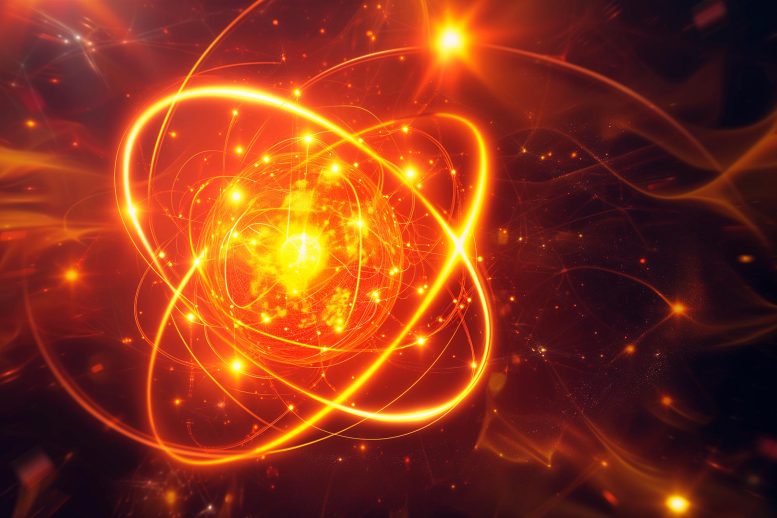
In a recently published study, researchers at the Department of Medical Biochemistry and Biophysics (MBB) at Karolinska Institutet have questioned the old paradigm surrounding isotopes of light elements—carbon, hydrogen, nitrogen, and oxygen. These isotopes have now emerged as more powerful than once thought.
Traditionally, scientists believed that isotopic effects in biochemical reactions were more or less proportional to the mass difference between isotopes. For instance, a 0.5% mass difference between normal and ultralight enzymes (molecules with depleted heavy isotopes 13C, 2H, 15N, and 18O) should yield a kinetic effect of no more than 1%. However, the study reveals that the effect can be 250-300%, which is two orders of magnitude larger than expected, depending on temperature.
Molecular dynamics simulations, widely used in thousands of scientific publications, have consistently overlooked isotopic composition. Researchers must now recalibrate their results, accounting for the hidden influence of isotopes.

“Isotopically pure compounds, such as enzymes, have superior properties compared to conventional compounds. This affects not only chemistry and biochemistry, but also biology and, possibly, medicine,” says Roman Zubarev, professor and research group leader in Roman Zubarev Group at MBB.
Several areas of science and technology can be immediately affected according to Roman.
“First, ultralight enzymes can be immediately produced by expression in E. Coli grown in isotopically depleted media, as we have done in this work. These enzymes work 2-3 times faster than the corresponding enzymes expressed by the same E. Coli but grown in normal media. Second, application of the ultralight effect in biology – one can grow ultralight organisms and study their deviating properties. For instance, we grew C. Elegans on the ultralight E. coli and found that they grow faster but also age and die sooner. Third, the isotope separation field can see a hugely increased demand for the depletion of heavy isotopes.
“New methods, including chromatography, may need to be developed to satisfy this demand and reduce the cost of ultralight compounds. Finally, the techniques to analyze stable isotopes in proteins, such as our Fourier Transform Isotopic Ratio Mass Spectrometry, will get enhanced interest,” Roman concludes.
Reference: “Ultralight Ultrafast Enzymes” by Xuepei Zhang, Zhaowei Meng, Christian M. Beusch, Hassan Gharibi, Qing Cheng, Hezheng Lyu, Luciano Di Stefano, Jijing Wang, Amir A. Saei, Ákos Végvári, Massimiliano Gaetani and Roman A. Zubarev, 27 November 2023, Angewandte Chemie International Edition.
DOI: 10.1002/anie.202316488
2 Comments
This also raises some interesting questions about the isotopic fractionation of CO2 when out-gassing from sea water or changing phase between solid and liquid.
No, it doesn’t.